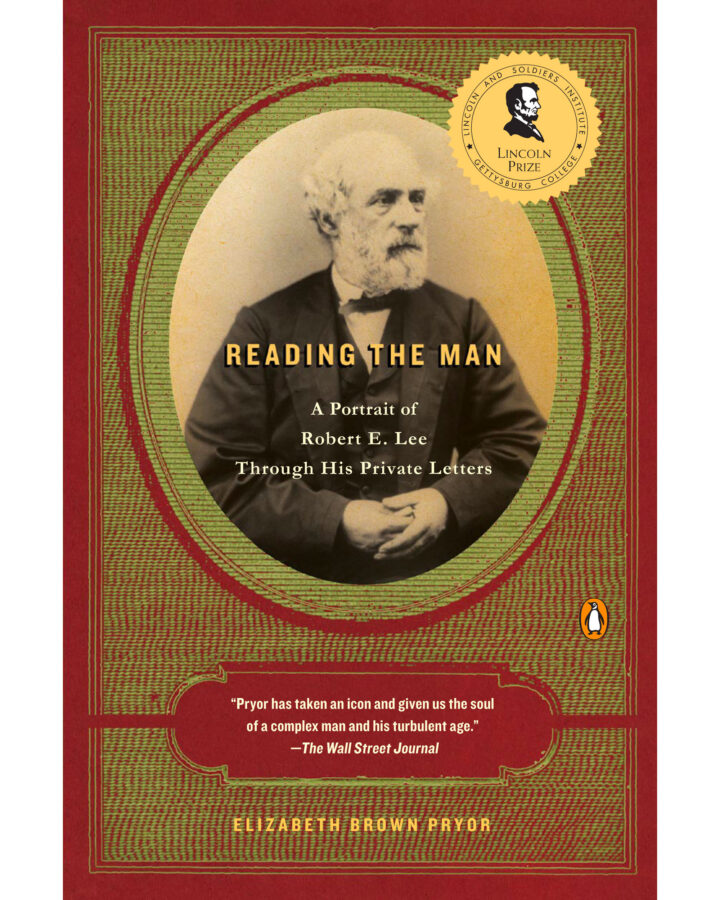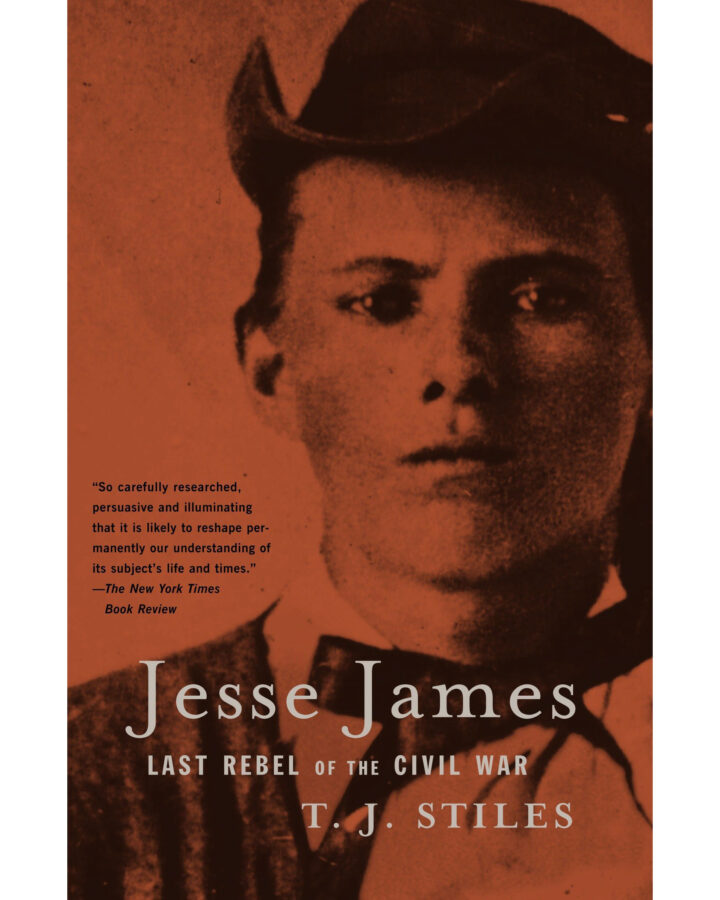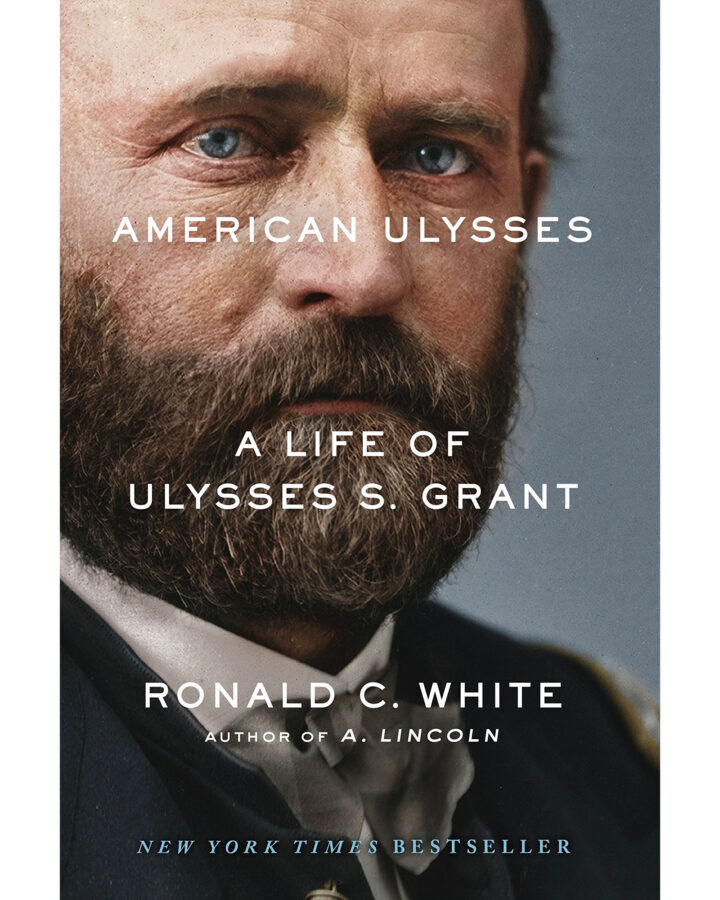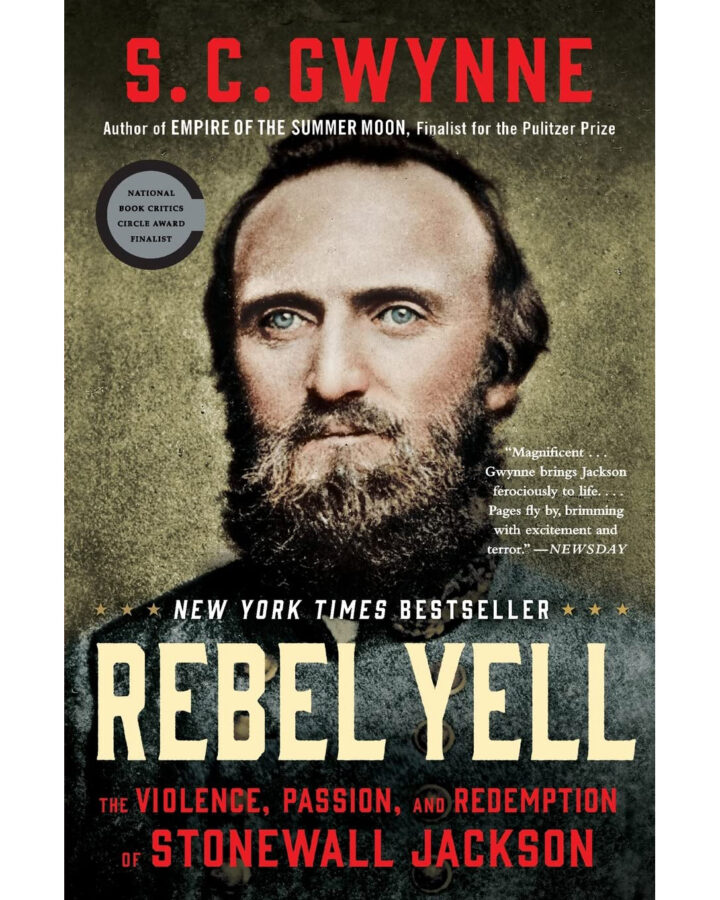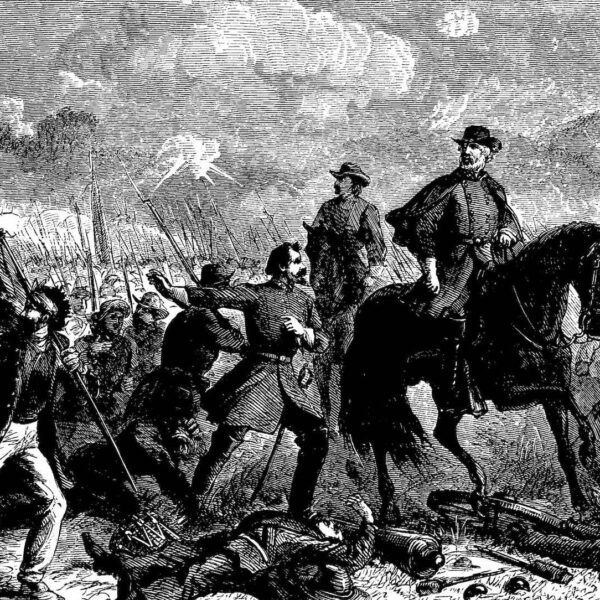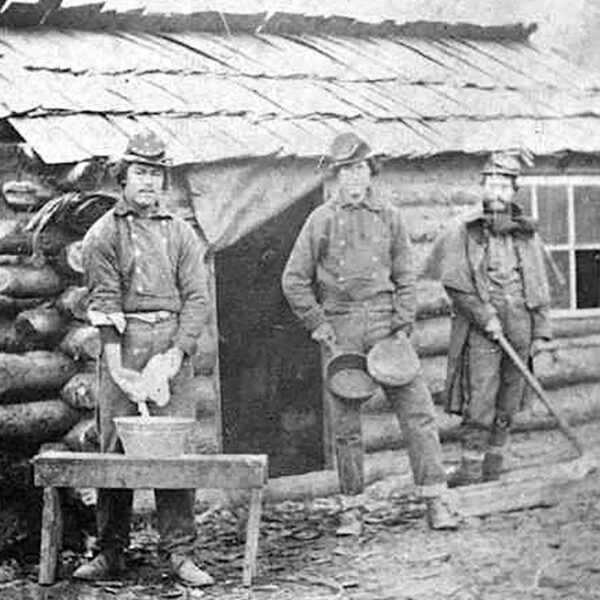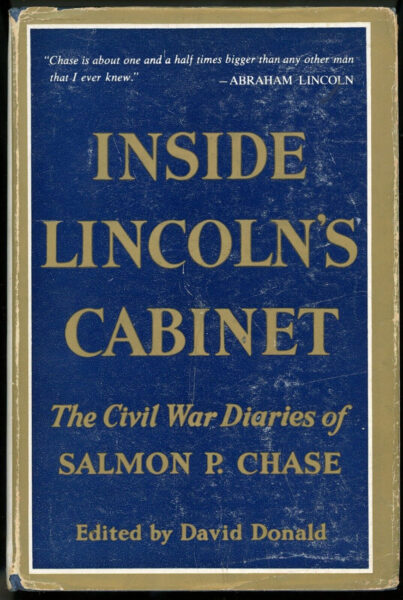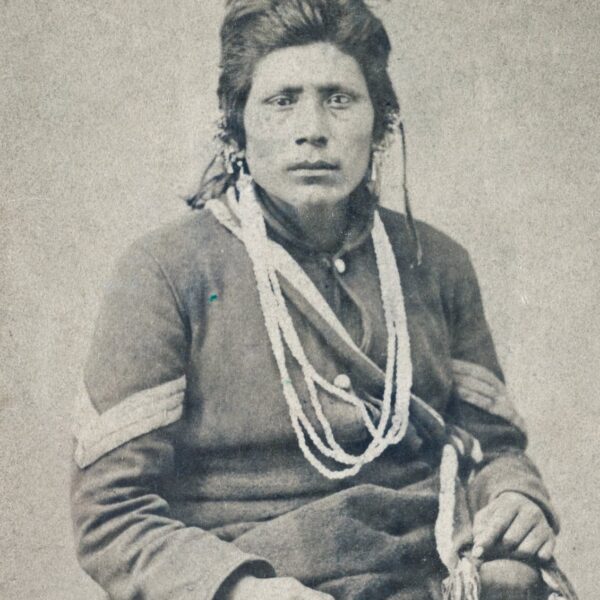It may seem a cliché to preface my Top Five articles with the disclaimer that the subject cannot possibly be done justice by so few recommendations. Then I cheat and add topical or geographical frameworks to make the selections manageable. Biography being perhaps more enormous than any other genre, it is a foregone conclusion that many, many truly outstanding books will be left off such a short list.
Biographies that fall under the Civil War heading generally speaking run the full gamut. There are famous works, like Douglas Southall Freeman’s four-volume treatment of Robert E. Lee (1934–1935), Carl Sandburg’s study of Abraham Lincoln (1926–1939), and more recently, David Herbert Donald’s Lincoln (1995). There are biographies that fill gaps or cover long-neglected figures (most recently Frederick Douglass, John Brown, Varina Davis, and Harriet Tubman); that challenge enduring interpretations (George McClellan, James Longstreet, Ulysses S. Grant); that offer new interpretations (Jesse James); and even some that appear designed to court controversy, such as explorations of Mary Todd Lincoln’s mental health or those questioning her husband’s sexuality.
The books on this list are a mix that admittedly skews toward reinterpretation and outright new interpretation. They focus on subjects from the varied ranks of bushwhackers-turned-terrorists, elite commanders, and civilians. They are researched to the highest academic standards, written by professional biographers and independent historians. What they most have in common, though, are the two hallmarks of excellent biographical writing: First, they keep their narratives interesting and lively even when covering mundane material or pedestrian stretches of plot, which is to say, they make the “boring” parts entertaining. Second, they complicate, rather than simplify, the stories of their subjects, thus envisioning a past broader than any single life.
Reading the Man: A Portrait of Robert E. Lee Through His Private Letters
By Elizabeth Brown Pryor (Viking, 2007)
From dozens of books published over the course of three centuries, several portraits of Robert E. Lee have emerged: the pious, chivalrous gentleman who just couldn’t bear to stand against Old Virginia; the traitor who turned his back on the nation that his father, “Light-Horse Harry” Lee, fought to create; the military genius who marched circles around his Union counterparts until finally succumbing to overwhelming numbers; the apologetic slaveowner who fought for states’ rights; and the shrewd slaveowner and social climber who married into money and enabled Jefferson Davis to spill the blood of untold numbers. What makes the late Elizabeth Brown Pryor’s treatment of “the Marble Man” so unique and appealing is that rather than wading into the partisan realm of Lee studies with a clear commemorative motive, Reading the Man is as close to “Lee in his own words” as readers will ever get. Known for his stoic persona in public, Lee was quite open about his life and feelings when corresponding with family and close friends. So Brown, in piecing together texts, becomes something of a posthumous ghost editor for the autobiography that Lee never put together for himself. What emerges from Lee’s personal thoughts and recollections is a far more complicated portrait of the Confederacy’s top commander than conventional biographies tend to paint.
Fortune’s Fool: The Life of John Wilkes Booth
By Terry Alford (Oxford, 2015)
For better than a century, books focused on Abraham Lincoln have come to constitute a genre unto themselves. That’s what makes it so peculiar that John Wilkes Booth, the man behind the murderous .44-caliber ending of Lincoln’s life, went for decades without a comprehensive biography. Fortune’s Fool was worth the wait, taking readers beyond the Lincoln Conspiracy or the standard caricature of Booth as a disgruntled thespian with a villain’s mustache. Alford exposes key elements of Booth’s childhood in a decidedly anti-slavery family; his quirky personality, including his love of animals; the ups and downs of his acting career and how it dovetailed with his love life; and how the tumultuous politics of 19th-century America gradually radicalized Booth and turned him into the nation’s most infamous assassin. To be sure, there is no shortage of titles concerned with the events of April 14, 1865, or the manhunt that followed Booth’s flight from Ford’s Theatre. (Michael Kauffman’s American Brutus and James L. Swanson’s Manhunt are standouts among them.) But the fullest understanding of the assassination must include the fullest understanding of the assassin. And for that, Fortune’s Fool is just the ticket.
Jesse James: Last Rebel of the Civil War
By T.J. Stiles (Knopf, 2002)
The Jesse James of the American imagination is an iconic western outlaw, renowned for holding up banks and trains with a lightning-fast six-gun, for doling out the proceeds of his banditry to the poor, and for his fatal encounter with Robert Ford, aka “the dirty little coward that shot Mr. Howard” and “laid poor Jesse in his grave.” What most Americans do not realize is that James was the son of a decidedly southern, slave-owning family in western Missouri and a diehard Confederate warrior. As T.J. Stiles chronicles in Last Rebel of the Civil War, nearly all of the violence that defined James’ relatively short life—from the torture of his stepfather by Unionist militia to his service as a bushwhacker in the irregular band of “Bloody Bill” Anderson to his killing a bank cashier during an attempted robbery in Northfield, Minnesota—stemmed from the American Civil War. That the war ended on paper in April 1865 did not reflect reality in the western borderlands of the late 1860s and 1870s. With that in mind, the book outlines the groundbreaking thesis that the famed James-Younger crime spree was not simply a case of men run amok in the West or even a Robin Hood figure responding to the oppressive forces of postbellum modernization; rather, it was an extension of the wartime guerrilla conflict, which made James and his ilk some of the nation’s most prominent anti-Reconstruction terrorists. Stiles is arguably America’s greatest living biographer and this book makes the most novel argument from his celebrated biographical trilogy, which includes Cornelius Vanderbilt and George Armstrong Custer.
American Ulysses: A Life of Ulysses S. Grant
By Ronald C. White (Random House, 2016)
Biographies of Civil War generals have been a popular sub-genre since before the smoke cleared at Petersburg. Robert E. Lee, William T. Sherman, and Thomas “Stonewall” Jackson have always been, and seemingly always will be, popular muses. The same cannot be said of Ulysses S. Grant, despite his being the military commander who arguably did more than any other to determine the outcome of the war. For decades, Grant suffered from a reputation tarnished by Union rivals and Lost Cause mythology—apocryphal narratives of “the drunkard” and “the butcher.” Over the last 20 years, however, we have witnessed a renaissance in public assessment and biographical treatment of the man who slugged it out with Lee at the end. Among a cluster of excellent biographies, including Ron Chernow’s Grant (2017) and Joan Waugh’s U.S. Grant: American Hero, American Myth (2009), it is Ronald C. White’s American Ulysses that stands tallest as a masterful cradle-to-grave telling of Grant’s story. From his boyhood relationship with his father, his academic struggles, and his courtship of his wife to the traumas of the Mexican War, his up-and-down path to Civil War stardom, and his final battle with throat cancer, White captures the nuances of Grant’s personality. By showing the man who came to be known by the sobriquet “Unconditional Surrender” to have been sensitive, often lonely, and frequently plagued by self-doubt, American Ulysses ultimately forces readers to think of Grant as more than the commander of a flagship army: He becomes a man reflective of the American Experience as the nation tore itself apart.
Rebel Yell: The Violence, Passion, and Redemption of Stonewall Jackson
By S.C. Gwynne (Scribner, 2014)
Each spring when I teach “The American Civil War and Reconstruction,” the semester begins with a discussion of what students already know—or think they know—about the war and why they are taking the course. A handful of students will claim to “know absolutely nothing” about the topic. Yet when pressed to name just a single commander, almost without fail they come up with “Stonewall Jackson.” This is illustrative of the fact that Thomas Jonathan Jackson, known to the world as “Stonewall” after his brigade’s stand on the Henry House Hill during the Battle of First Manassas, may be the Civil War’s most superficially remembered but least understood character. In spite of works on Jackson and his campaigns by notable Civil War scholars, it has proven very difficult to cut through the aura of Lost Cause mythology created by Jackson’s own staff officers and his wife. (The depiction of Jackson as ardently anti-slavery in the dreadful 2003 film Gods and Generals did not help.) Rebel Yell provides the most balanced look at Jackson so far available. Rather than shy away from the familiar depiction of a general sucking lemons in battle, riding with an arm raised to balance his body’s humors, Gwynne interweaves the story of Jackson’s frustration-ridden and often tragic life with the origins of his personal mythology. In this sense, the book is simultaneously two biographies: one of the man and one of his legacy. The figure that emerges from this approach is surprisingly normal and human when it comes to his personal relationships and family backstory and surprisingly fallible when it comes to his military résumé. In short, this version of Jackson’s story will please neither his detractors nor his champions—which is a good thing.
Matthew Christopher Hulbert is Elliott Assistant Professor of History at Hampden-Sydney College. He is the author of a forthcoming biography of Confederate cavalryman, newspaper editor, and notorious propagandist Major John Newman Edwards. Oracle of Lost Causes: John Newman Edwards and His Never-Ending Civil War is due out in September 2023 from Bison Books.
